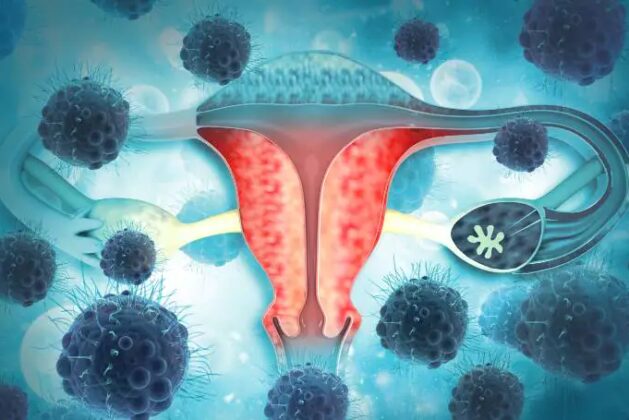[ad_1]
Gynecological cancer is a cancer that affects all the reproductive organs of a woman. This includes the uterus, fallopian tubes, ovaries and vagina. Analysis of healthy lifestyle risk factors for gynecological cancer shows that obesity plays a major role in cancer.
Risk factors for gynecological cancer
According to Jayshree Nagaraj Bhasgi, Senior Consultant, Obstetrics and Gynaecology, Fortis Hospital, Richmond Road, Bangalore, here are some of the lifestyle issues that can increase the risk of gynecological cancer in women:
1. Obesity
Obesity among women has tripled from 1975 to 2016, and the World Health Organization has declared it an epidemic. Despite the availability of better treatments, there is a significant increase in mortality from gynecological cancer according to body mass index (BMI).

It has been observed that fat has an inflammatory effect on the tissues, which can make a woman a victim of obesity. This obesity promotes biology and cancer diseases, this obesity can lead to high blood pressure, high blood sugar, low good cholesterol, which can lead to metabolic syndrome. It has components that are related to cancer, especially uterine cancer.
2. Smoking
Smoking is another risk factor that increases the risk of gynecological cancer. Smoking weakens the immune system. as a result and
Tobacco by-products, which act as chemical carcinogens, make the cervix more susceptible to HPV (human papilloma virus) infection.
3. Sexually Risky Behavior (HRSB)
Many sexual partners engage in unsafe practices such as premarital sex and promiscuous sex, which lead to sexually transmitted diseases such as HIV and HPV infections and genital infections. This is another risk factor for gynecological cancer.
4. Drug use
Substances such as cocaine and alcohol are responsible for unprotected sex.
How to reduce the risk of gynecological cancer
These lifestyle changes that can be made include preventing obesity, HRSB, avoiding smoking, thereby reducing these cancer risk factors and achieving a better lifestyle.
1 Eat a balanced diet to prevent obesity
Like many other conditions, obesity can be prevented by changing diet and exercise. Including fruits and vegetables in your daily diet will help you get rid of obesity because they are rich in nutrients along with fiber.
They make you feel full despite the low calorie intake. It is good to avoid refined food products that quickly increase blood glucose levels and put a lazy person at high risk of diabetes and obesity.

Avoid processed foods that are loaded with calories and reduce your sugar intake through sugary drinks, cakes, cookies, ice cream, etc. Sugar-free drinks are better for your health, in which case sugar intake should be limited, no more than four teaspoons of sugar per day. It is best to avoid artificial sugar.
Healthy fats such as peanut butter and olive oil are preferred, and 20 to 35 percent of daily calories should come from healthy fats. It is better to avoid saturated fats.
Eating such a diet leads to overall health and reduces obesity.
2 exercises
Most national and international guidelines state that an adult should do at least 150 minutes of moderate physical activity per week. This includes 30 minutes a day and five days a week.
Walking is the best exercise for maintaining a healthy weight with a BMI of less than 30.
Yoga, tai chi, meditation, and music are relaxing activities that reduce chronic stress hormones and promote weight loss by controlling stress-induced obesity.
3. Sleep
8 hours of good sleep reduces the chances of obesity.
4. Show
pap test Regular cervical cancer screening and HPV vaccination by Dr. Use of safe contraceptive methods such as condoms to prevent STDs and birth control pills is recommended.
Self-examination should be done regularly by a gynecologist every two years. Especially when there is a family history of gynecological cancer.
Also read: Emotional stress can also harm your heart health, here’s how
[ad_2]



Leave a comment